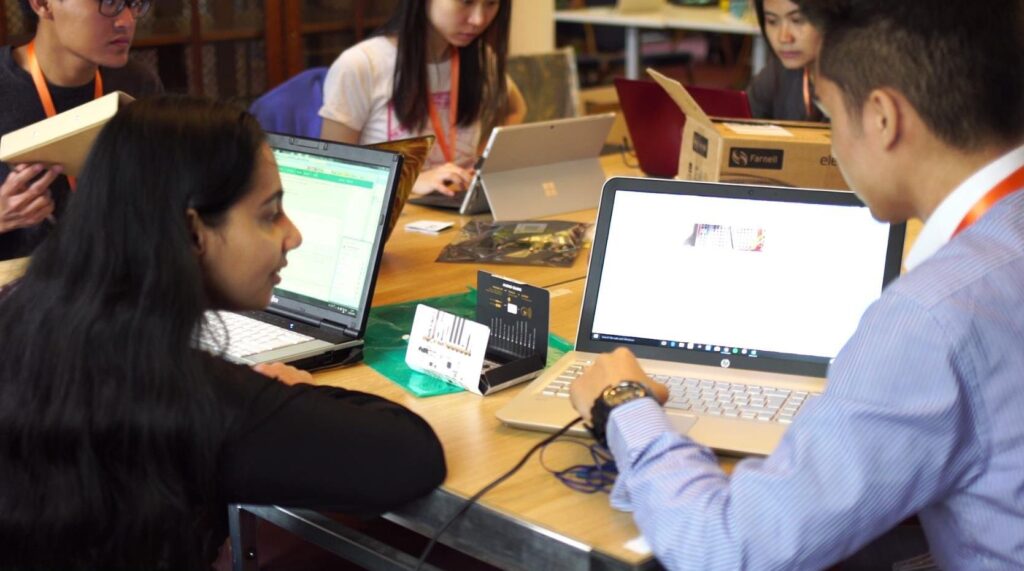Helping to Develop Motivation and Provide Inspiration
Motivation and inspiration are important for support Workers for a number of reasons:
- Improved learning outcomes: When learners are motivated and inspired, they are more likely to be engaged and focused on their learning. This can lead to better learning outcomes and a stronger understanding of the material being taught.
- Increased job satisfaction: When learners are motivated and inspired, they are more likely to be satisfied with their job and career. This can lead to increased retention rates and a more positive work environment.
- Enhanced patient care: When learners are motivated and inspired, they are more likely to be engaged and committed to providing the best possible care to their patients. This can lead to improved patient outcomes and satisfaction.
- Personal development: Motivation and inspiration can also be important for personal development and growth. When learners are motivated to learn, they may be more likely to take on new challenges and seek out new learning opportunities.

There are several strategies that work based practice educators and line managers can use to motivate and inspire learners:
- Set clear goals and objectives: By setting clear goals and objectives, clinical educators can provide learners with a sense of direction and purpose. This can help learners stay motivated and focused on their learning.
- Encourage self-directed learning: Encouraging learners to take ownership of their own learning can help to increase motivation and engagement. This can be done through activities such as problem-based learning, case studies, and simulations.
- Foster a positive learning environment: A positive and supportive learning environment can help learners feel more motivated and engaged in their learning. This can be achieved through things like regular feedback and support, a collaborative atmosphere, and the use of technology to enhance learning.
- Use a variety of teaching methods: Using a variety of teaching methods, such as lectures, hands-on training, and online resources, can help to keep learners engaged and motivated.
- Recognise and reward achievements: Recognising and rewarding learners for their achievements can help to boost motivation and encourage continued learning. This can be done through things like certificates, praise, and opportunities for advancement.
We can also support learners better by having a better understanding of what motivation fundamentally is and using well understood theories to inform our development practice.
A great example of a model to explore would be Self Determination Theory.
Self-determination theory is a psychological theory that explains how people are motivated to engage in certain behaviours. It suggests that people are more motivated and engaged when they feel that their actions are aligned with their values and goals, and that they have control over their own lives.
There are 3 three core principles at the heart of self-determination theory:
Autonomy
Autonomy refers to the degree to which people feel that they have control over their own lives and actions. According to self-determination theory, people are more motivated when they feel that they have a high level of autonomy.
Competence
Competence refers to the feeling of being capable and effective in one’s actions. According to self-determination theory, people are more motivated when they feel competent in what they are doing.
Relatedness:
Relatedness refers to the feeling of being connected to others and feeling like one belongs. According to self-determination theory, people are more motivated when they feel connected to others and a sense of belonging.
For educators, understanding self-determination theory can help them to better understand how to motivate and inspire learners. By fostering a sense of autonomy and control, educators can help learners feel more self-determined and motivated to engage in their learning. This can be achieved through things like:
- Providing learners with choices and options: Allowing learners to make decisions about their own learning can help to increase their sense of autonomy and control.
- Encouraging self-reflection: Encouraging learners to reflect on their own values and goals can help them to feel more connected to their learning.
- Providing feedback and support: Providing learners with regular feedback and support can help to build their self-confidence and sense of control.
- Encouraging collaboration: Collaborative learning activities can help learners to feel more connected to their peers and more motivated to engage in their learning.
Overall, understanding self-determination theory can help educators to create learning environments that are more motivating and engaging for learners.
Read this
This paper on Self Determination Theory and motivation in students expected autonomy to be the key motivational factor and found that relatedness was more salient in their context.
If you are interested to explore more about SDT the Centre for Self Determination Theory is a good place to start
Watch this
Dan Pink’s talk on motivation uses slightly different headings to self determination theory (he uses Autonomy, Mastery and Purpose) however he is clearly basing his thinking on the same framework. This animated version of his talk explores how traditional motivational approaches based on the idea that people are motivated by rewards and incentives, such as money and promotions, are not relevant for most roles and are not effective in the modern world to the extent that in many cases, extrinsic rewards can actually decrease motivation. Instead, Pink argues that the key to motivation is autonomy, mastery, and purpose. Autonomy refers to the ability to have control over one’s own work, mastery refers to the desire to get better at something, and purpose refers to the desire to do something that has meaning and purpose.
